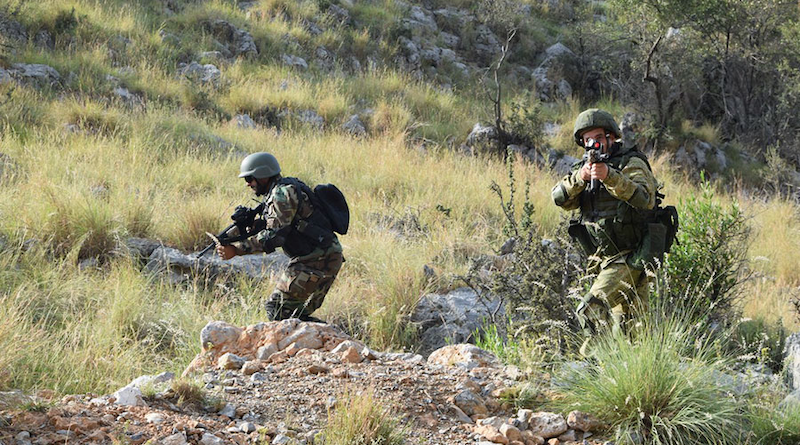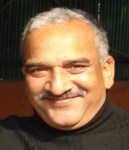Are Pakistan Army’s Days Of Being A Law Unto Itself Numbered? – OpEd
- April 26, 2024
- Posted by: admin
- Category: Pakistan

Editor’s Note: On Tuesday, six out of the eight judges of Islamabad High Court wrote a letter to the Supreme Judicial Council members complaining about interference of Pakistan army’s spy agency Inter Services Intelligence [ISI] in judicial affairs.
The piece below which was published in Eurasia Review on December 1, 2019 addresses this very issue and is hence being republished [in original].
The cavalier manner in which the Government of Pakistan (GoP) proceeded to grant army chief Gen Qamar Javed Bajwa a three-year service extension was rightly struck down by the Supreme Court (SC) of Pakistan causing immense embarrassment to the government as well as the army.
The SC verdict has given detractors a handy stick to pommel Prime Minister Imran Khan and the PTI. But even though being no fan of his, I still feel that all the hue and cry being raised is unwarranted and that Khan and his advisors are unnecessarily being hauled over coals for having followed precedent rather than going by the law, just like governments in the past had been doing.
By stating in its order that “The learned Attorney-General (AG) has taken pains to explain that the answers to these questions (on grant of extension to the army chief) are based on practice being followed in the Pakistan Army but the said practice has not been codified under the law,” even the Supreme Court of Pakistan too has tacitly accepted that while what Khan did is illegal, but it isn’t something earth-shattering!
Yet, by advising the government to “Put your house in order” and giving it six months to promulgate legislation for service extension, CJP has minced no words in conveying that the judiciary would not accept any fait accompli.
This is not the first time that service extension to an army chief has been challenged in court. Readers would recollect that in 2010, the Pakistan Peoples’ Party (PPP) had granted a three-year service extension to Gen Parvez Kayani and though this decision was challenged in Islamabad High Court, it was dismissed as being “non maintainable.” Though this was a hasty judgment that went in favour of the army chief, yet it didn’t cause any ripples at home or across the world as people largely agree that Pakistan is rightly referred to as a nation that belongs to the army and not vice versa!
Fast forward to 2019 and we have a three-member bench headed by Chief Justice of Pakistan (CJP) Asif Saeed Khosa admitting the petition submitted by Raiz Rahi challenging Gen Bajwa’s extension. The bench found merit in the complaint and when the plaintiff sought to withdraw his petition, the CJP rejected this request and instead took it up as a public interest litigation under Article 184. After deliberation the three-member bench noted that the “AG failed to point to any existing law” on the basis of which Gen Bajwa was given service extension.
By suspending the government’s notification granting service extension to Pakistan’s army chief (who is incidentally the country’s most powerful entity), the CJP has shown that he is not only full of spunk but also possesses exemplary professional integrity. His blunt but incisive observation that “There is no check on the activities that are going on in cantonment or under which law an action is being taken” aptly reflects the sorry state of affairs prevailing in Pakistan for which he deserves due appreciation. His actions may antagonize the military but it was necessary to this ‘hard’ decision in order to make it clear to one and all that that in a democracy, no one is above the law!
But the most assuring thing is Khosa’s rejoinder that “Now a constitutional institution is examining this matter” as it clearly conveys the message that henceforth only legal provisions and not precedent or “practice being followed in the Pakistan Army” would be acceptable to the judiciary. By giving the government six months to frame legislation for granting service extension to army chiefs, CJP has added the element of urgency to this issue.
How are Khosa’s observations received by the army is yet to be seen, but one thing that’s absolutely clear is that he doesn’t seem to be the type who will let Rawalpindi have its way as far as the judiciary is concerned.
Allegations of the army meddling with the judicial process in Pakistan are rampant and even though the army vehemently refutes it, one has to take these denials with a pinch of salt as evidence to the contrary is aplenty. In July last year, Justice Shaukat Aziz Siddiqui of the Islamabad High Court severely embarrassed Rawalpindi by revealing that Inter-Services Intelligence (ISI) “personnel get benches (in courts) formed at will.” When Pakistan army insisted that this allegation was false and asked the Supreme Court to investigate the same, instead of doing so, Siddiqui was summarily sacked by the President on the recommendations of Supreme Judicial Council of Pakistan.
Needless to say, this kneejerk axing sent out a clear message to the judiciary that the army had ‘zero tolerance’ for any criticism of ISI. But just seven months later, in a landmark judgment issued on the Tehreek-e Labaik Pakistan (TLP) sit-in agitation case, Supreme Court Justice Qazi Faez Isa made a stinging reference to the Pakistan army by concluding that “The perception that ISI may be involved in or interferes with matters with which an intelligence agency should not be concerned with, including politics, therefore was not put to rest.”
Justice Isa’s misgivings weren’t misplaced because everyone knows that the agreement between the government and TLP to end this agitation was brokered by the army and Maj Gen Faiz Hameed of the ISI had signed this agreement in the capacity of ‘guarantor’. That’s why by stating that “The government of Pakistan through the Defense Ministry and respective chiefs of the army, the navy, and the air force are directed to initiate action against the personnel under their command who are found to have violated their oath (of not engaging in any kind of political activity),” Justice Isa has left nothing to imagination!
Therefore, even if it rubs Rawalpindi the wrong way, but for the overall good of Pakistan, Khosa’s endeavour to reassert the judiciary’s credibility by freeing it from interference from the army and intelligence agencies needs full public support!
Tailpiece- The army may have rejected charges levelled by Justice Shaukat Aziz Siddiqui regarding the ISI’s involvement in ‘fixing’ judicial benches and Justice Qazi Faez Isa’s observation of the ISI delving into politics. But what does Gen Bajwa have to say on Gen Pervez Musharraf’s own 2016 revelation about the army’s effective influence over the judiciary? After all, didn’t Gen Musharraf himself admit that “once he (Gen Rahil Sharif) got the government to relieve the pressure that they were exerting, the courts gave their judgment and allowed me to go abroad for treatment”?FacebookTwitterEmailFlipboardMastodonShare


Nilesh Kunwar
Nilesh Kunwar is a retired Indian Army Officer who has served in Jammu & Kashmir, Assam, Nagaland and Manipur. He is a ‘Kashmir-Watcher,’ and now after retirement is pursuing his favorite hobby of writing for newspapers, journals and think tanks.
